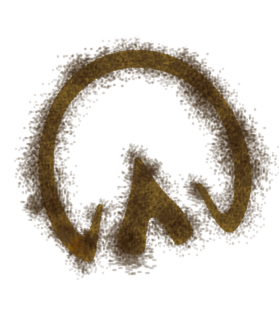Hay Everyone!
Have you ever stood in the feed store aisle and contemplated the vast array of supplements lining the shelves? I have and, whew, it’s exhausting. How do you sort through this massive amount of information to decide whether your horse needs a supplement and if so, which one? Well, our very own Dr. Carey Williams has authored a factsheet to help guide you through this decision making process. If you want all the details, you should visit the factsheet online. I’m going to go ahead and give you a brief recap with some of the important points in today’s blog.
The first thing to consider when making decisions about a supplement is the base diet your horse is consuming. A typical horse consuming a balanced diet is unlikely to need a supplement. Specific conditions or issues may make it worthwhile or necessary to feed your horse a supplement. A balanced diet for any horse should consist of a high quality forage (fed at a rate of at least 1.5% of your horse’s bodyweight), free choice water, and free choice salt (plain). In some scenarios, a commercially formulated feed or ration balancer can also be fed as a part of a balanced diet. Horses doing more strenuous exercise, reproducing, lactating, or growing are generally most likely to need extra nutrients in the form of a commercially formulated feed. If fed at the recommended levels, commercially formulated feeds are designed to the meet the nutrient requirements of horses without further supplementation. A horse, just like a human, has requirements for certain amounts of carbohydrates, proteins, fats, vitamins, and minerals in its diet to sustain daily functions. If these requirements are being met, your horse is likely to be healthy.
Once you’ve evaluated your horse’s diet and determined how much of the various nutrients it is consuming, you need to evaluate if your horse has any conditions or issues which may increase its need for a particular nutrient to maintain good health. You can then use this combination of information to identify supplements your horse may benefit from. Take this information with you as you evaluate different supplements. You’ll want to consider the following questions as you evaluate different supplements:
- What ingredients does the supplement contain?
- These ingredients should supply the nutrients you want to supplement in your horse’s diet. Ingredients supplying nutrients not on your list of desired nutrients have the potential to cause problems as you can overfeed some nutrients resulting in toxicity.
- What amount of each nutrient is supplied in a dose of the supplement?
- The amount supplied should be enough to cause a change, but not so much that it creates toxicity for your horse.
- Is there reputable research to support the use of this product or ingredients in treating the issue or condition you’ve identified?
- You should consider who conducted the research and how the study was designed.
- Is there reputable research to support the recommended dose?
- Feeding a supplement at a dose other than that shown to be safe and effective can cause problems or fail to address the reason you’re feeding the supplement.
As a horse owner, it is critical that you do this background work to make sure the supplement you’ve chosen is safe and effective. In the United States, there is no regulation of supplements, thus, a supplement on the feed store shelf has not necessarily been proven safe and effective for horses.
After you’ve chosen what you think is the most appropriate supplement, feed it to your horse. You’ll want to feed it for at least a month or longer to determine whether it’s making a difference. If not, then you can repeat the process outlined above to choose a different supplement.
There are many different types of classes of supplements. On of the most important is electrolytes. Horses who sweat often or profusely do need electrolyte supplementation. When evaluating these supplements, it is important to choose one in which the first ingredient is salt (NaCl). This is one example of a class of supplements you might choose to feed to your horse. You can check the factsheet for more examples of supplement classes or categories.
One type of ingredient you may need to pay special attention to is herbs. Herbs are not necessarily safe just because they are natural. Like weeds and other natural substances, herbs can contain toxic substances that can harm your horse or make it sick. Another concern with herbal supplements is that many of the compounds in herbs can interact with other medications rendering them ineffective or dangerous. Many herbs also contain compounds which are illegal in many competitive sports. If you are feeding these herbs, your horse could come up positive on a drug test. Because of all these factors it is especially important to know which herbs are present in a supplement and do your background research before feeding it.
I think the most important thing to know about supplements is that you need to be an educated buyer. You can always seek help from your local Extension agent or a nutritionist if you’re unsure about whether your horse needs a supplement or if a particular supplement would be safe for your horse. Good luck the next time you’re in the feed store contemplating that massive row of supplements! Hopefully, you have a few tools and tips to help you in the decision making process.
Until Next Time.
Your Friend,

Lord Nelson


Comments (2)
Markus Rodent
Feb 15, 2023
Lord Nelson
May 13, 2024